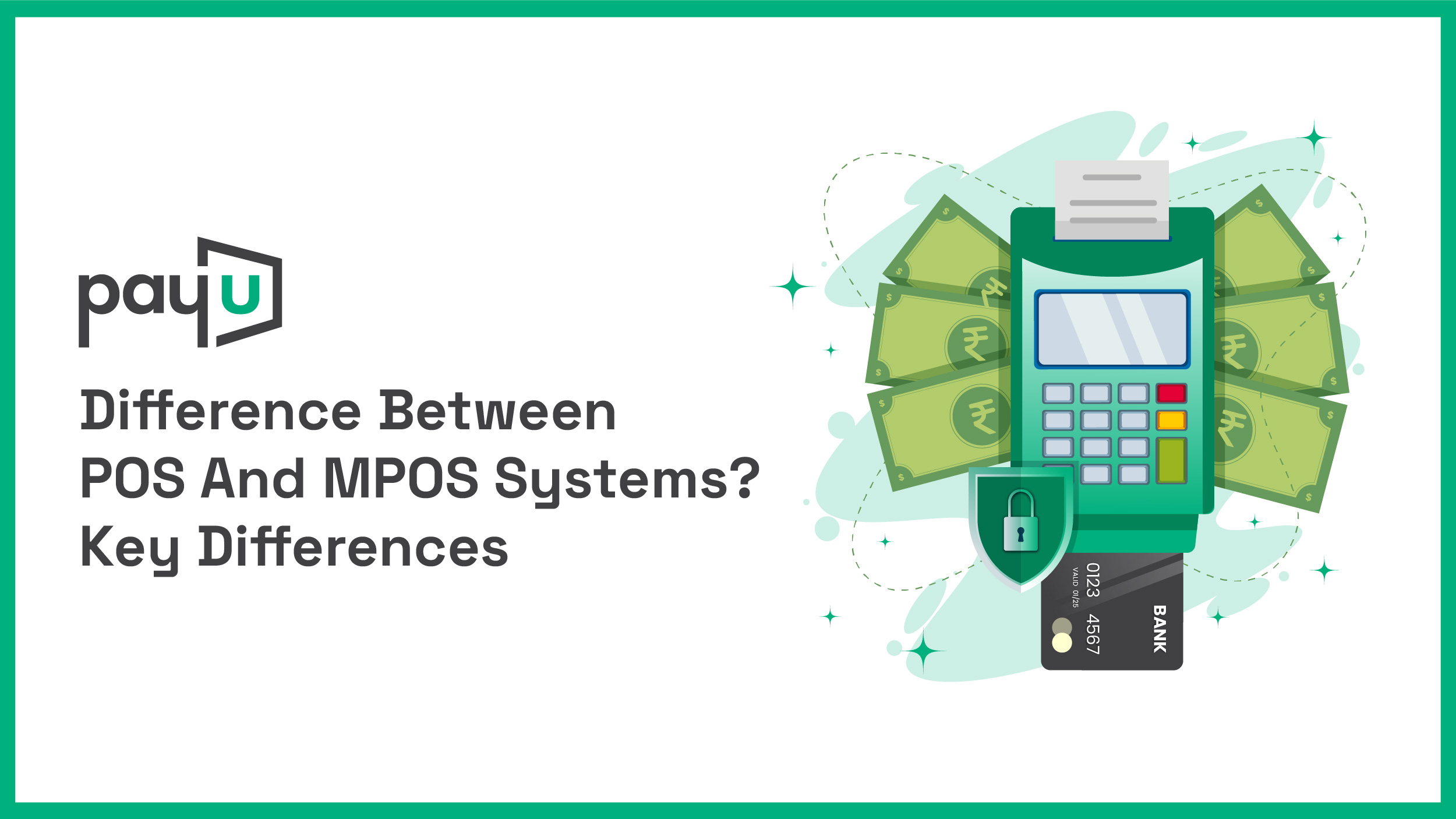
POS vs MPOS: What’s the Difference & Which to Choose?
With businesses matching the pace of the dynamic technical shifts in operations, POS (Point of Sale) and MPOS (Mobile Point of Sale) have gained popularity as the two commonly used setups to make payment systems hassle-free. What is POS, what is MPOS, how do they differ, and which should you choose for your business? This article will answer each question in detail to help you explore which is better for your business.
| Table of Contents: |
| What is POS? |
| What is MPOS? |
| Key Differences Between POS and MPOS? |
| Which System Is Right for Your Business? |
| Conclusion |
What Is POS?
Remember going to a department store and standing in a queue to pay and get the bill from a billing counter? That counter is a point of sale. A POS is a traditional Point Of Sale setup consisting of hardware and software solutions to process transactions, accept payments, and streamline all other aspects of sales like inventory and customer data. POS is a broad term used for the entire stationary setup of POS integration that includes-
- Barcode scanner
- Cash drawer
- Card payment processing unit
- Computer or terminal
- Receipt printer
- POS software
Read more – How to Track POS Transactions?
What Is MPOS?
Say you own an apparel store and have a POS system setup. Now, the comprehensive system works great when the store purchases are to be managed, and all transactions are processed at one point.
But, say you are planning for weekend pop-up stalls at different locations. Instead of setting up a full counter, you can use a mobile POS machine (MPOS) to process payments and check inventory in real time.
MPOS is a portable version of the POS system. It enables businesses to process payments using a mobile POS machine, which can be a smartphone, tablet, or dedicated device connected to a card reader via Bluetooth or Wi-Fi.
Key Differences Between POS and MPOS:
Both the POS payment system and the mobile point of sale adhere to the industry standards in security, that is, the Payment Card Industry Data Security Standard (PCI DSS) and the EMV (Euorpay, Mastercard, and VISA). However, traditional point-of-sale systems are considered to be more secure with encrypted payment processing and fraud detection, while MPOS may be more vulnerable to cyber threats.
Apart from this, the other key differences between POS and MPOS are as follows-
| Feature | Traditional POS | Mobile Point of Sale |
| Hardware Setup | POS requires a dedicated terminal with a comprehensive setup, including desktop computers and receipt printers. | MPOS relies on a smartphone, tablet, or card reader to function |
| Suitable Businesses | The fixed installations make them ideal for static business locations | The compact setup of MPOS makes them suitable for mobile business models |
| Portability | POS systems are fixed at one location | MPOS solution processes transactions on the move |
| POS integration | The anchored setup needs to be connected with inventory, accounting, and CRM (customer relationship management) software. | MPOS operates on a cloud-based integration with business apps and digital wallets |
| Ease of use | POS requires separate installations and staff training to start using it | MPOS needs a simple setup and is easy to use with minimal training |
| Maintainance | What is POS maintenance requirement? These may need hardware replacements, software updates, and multiple other component upgrades. | What is MPOS maintenance requirement? It does not need frequent system repairs or labor-intensive maintenance. |
| Cost | POS requires a higher upfront investment for hardware and software | MPOS can be set up at a lower cost as it requires minimal hardware |
| Internet Dependency | You can work with a POS payment system offline with stored data | MPOS requires an internet connection for real-time transactions |
| Transaction processing speed | POS processes multiple payments quickly in high-volume settings | These are more suited for medium to low transaction volumes |
Which System Is Right for Your Business?
Choosing between POS and MPOS depends on your business model and operational needs. To select the most suitable one, consider the following-
- Retail stores and restaurants:
A POS system setup is better suited for businesses that handle large transaction volumes and require integrated inventory management.
- Mobile and flexible operations:
An MPOS system is ideal for businesses that operate remotely, have limited counter space, or need to process payments on the go. For instance, it would be better to use MPOS for pop-up shops, food trucks, and other mobile business models.
- Cost considerations:
MPOS systems offer a more affordable solution, while traditional POS systems require a larger initial investment. MPOS is thus a preferred option amongst small businesses.
Conclusion:
Understanding what is POS, what is MPOS, and the difference between the two is essential for choosing the right payment processing system for your business. If you need a powerful, feature-rich system for handling high transaction volumes, a POS system setup is a better choice. However, if mobility and affordability are your priorities, a mobile POS machine might be the best fit. Simply start by evaluating your business needs, operational scale, and budget, then select a system that helps enhance the processing capabilities and improve the customer experience.


